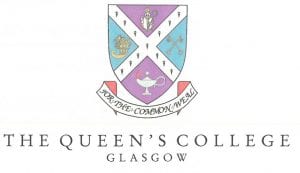Tours during trimester
Library tours run on Tuesdays and Fridays at 12 noon starting week beginning 4 February. Just come to the Library Desk.
Library tours run on Tuesdays and Fridays at 12 noon starting week beginning 4 February. Just come to the Library Desk.
Getting started with CINAHL workshops are running during November in Library Ask & Learn space, Level 1, Saltire Centre.
CINAHL (Cumulative Index for Nursing and Allied Health) is an authoritative source within the field of nursing and allied health. The database indexes from more than 3,000 journals and allows you to search using a combination of free text (or keyword) and thesaurus terms (known as CINAHL headings) to produce precise results. It offers functionality to limit to peer review material and link out to full text articles.
If you need help to search CINAHL more effectively or have never used CINAHL before, these workshops are for you.
Check out our schedule or contact us if you can’t make these times.
**This issue has been resolved. GCU users are no longer required to register individually to view Broadcast articles. Full access is available via the Library’s Discover search and Journal Browse services.** Continue reading
Journal articles, book chapters and conference papers supplied by the British Library will now be delivered to staff and students via the DRM Lite service.
Benefits of DRM Lite
How do I get articles via DRM lite?
Full information is available on our web pages. https://www.gcu.ac.uk/library/usingthelibrary/inter-libraryloan/drmlite/
On a rainy Saturday afternoon stands were assembled, banners unfurled and hung. Pencils sharpened and leaflets laid. All in preparation for the attendees, as they arrived to mellifluous South African music that melded soon with memories regaled.
This was Banner Tales, an event organised by Glasgow Museums, Glasgow University Geography Department, Glasgow Caledonian University Archive Centre, ACTSA Scotland and Nelson Mandela Scottish Memorial Foundation with the support of the Raphael Samuel History Centre. The two banners under discussion were from the Scottish Anti-Apartheid Archive held in GCU Archive Centre and Glasgow Life. Each authentic to the time period and rich in colour and history.
One of many events throughout October as part of Black History Month, it also coincided with the week of the 25th anniversary of Nelson Mandela’s visit to Glasgow on the 9th of October 1993 to receive the freedom of nine cities.
Please be aware that we are currently experiencing difficulty linking to Nursing Times from the Library’s Journal browse. This is currently being investigated by our vendor; in the meantime, we have a simple workaround. Continue reading
October is Health Literacy Month and this week is Challenge Poverty Week – GCU Library will be blogging and tweeting our support throughout. Links between poverty and health are well documented. The Shanghai Declaration on Health Promotion recognised health literacy as a ‘critical determinant of health’ and the World Health Organisation puts improved health literacy at the heart of at least 7 of the UN’s sustainable development goals, including no.1 – no poverty. Continue reading

It was during its centenary year in 1975 that the College received its royal title, the Queen’s College, Glasgow. Before that it was called the Glasgow and West of Scotland College of Domestic Science (Incorporated), a name dating back to 1908 when the two Glasgow cookery schools amalgamated to form the College. At that time it described very precisely (if not concisely) the function of the College, but after the passage of sixty seven years the name no longer fitted its purpose. Continue reading
We have completed our annual review of the Harvard British Standard Referencing Guide. Continue reading
This summer we have completely updated our subject guides – these guides are a great first place to look for help with your subject resources. Continue reading